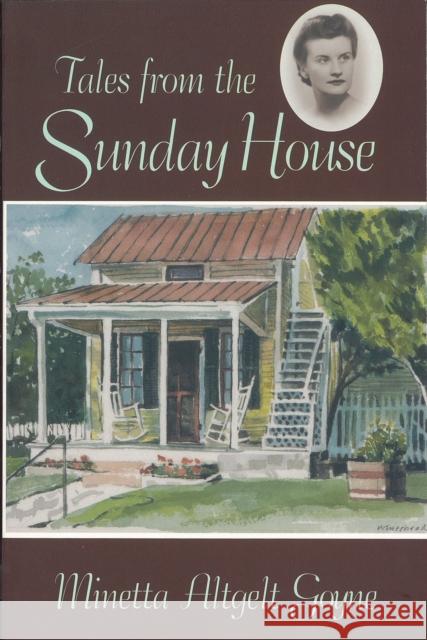Tales from the Sunday House » książka
Tales from the Sunday House
ISBN-13: 9780875651736 / Angielski / Miękka / 1997 / 144 str.
In the middle of the nineteenth century more than 7,000 Germans migrated to Central Texas--most to Comal, Gillespie, and Llano Counties. For the next three quarters of a century, the Germans of Central Texas retained much of their ethnicity: they were taught German in the schools, there were German-language newspapers, and ties to the Fatherland remained strong. But with the coming of World War I, many of the Hill Country Germans began slipping away from the old ways. The generation that grew up between the two world wars became more and more Americanized.
In "Tales from the Sunday House," Minetta Altgelt Goyne gives us glimpses into the real lives of this between-the-wars generation. Sometimes incomplete, sometimes apparently pointless, sometimes merely addenda to previously told tales, these eleven stories are the kind of tales family members told other--often younger--members of the family as they sat by the fireside or on the porches of their "Sunday Houses," structures peculiar to the German Texans, built on lots so that rural farmers and their families would have a place to rest when conducting business in town, looking after medical needs, or attending church services.
"Tales from the Sunday House" immerses us in the personal, private, and sometimes public lives of the Kreutz and Bracht families. By the final chapter, these quiet and simple stories have given us an insight into the culture established by the early German immigrants and altered by the growing Americanization of younger generations.
"'Habt ihr irgend luck gehabt mit euer'n drive? --Did you have any luck with your drive?' Emma asked her son.
'Oh, it went O.K., I guess, ' the boy answered, and Emma immediately sensed that he preferred to speak English. Ever since the children had left home, they had showed a certain reluctance to speak German, and this had become something of a barrier between them and their parents, who did not realize that they themselves could not speak either language without the aid of the other one."--from "Some day, Vielleicht"











